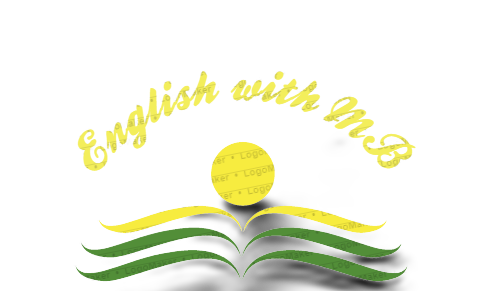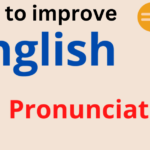Mastering the intricacies of a language can be a rewarding challenge, and understanding Grammar Articles in English is a fundamental step in that journey. These tiny words, “a,” “an,” and “the,” may seem insignificant at first glance, but they play a crucial role in conveying the specificity and meaning of your nouns. Whether you’re a seasoned writer or just starting to learn English, this exploration of Grammar Articles will equip you with the knowledge to use them confidently and effectively.
Grammar Articles in English
The words a or an and the are called Articles. They come before nouns. There are two Articles – a (or an) and the. A or an is called the Indefinite Articles because it usually leaves the person or thing spoken of; as, A doctor; that is, any doctor. This is called the Definite Articles, because it normally points out some particular person or thing; as, He saw the doctor; meaning some particular doctor. The indefinite articles is used before singular countable nouns, e.g. A book, art orange, a girl.
The definite articles is used before singular countable nouns, plural countable nouns and uncountable nouns, e.g., The book, the books, the milk A or An The choice between a and an is determined by sound. Before a word beginning with a vowel sound an is used; as, An ass, an enemy, an ink pad, an orange, an umbrella, an hour, an honest man. An heir.
It will be noticed that the words hour, honest, and heir begin with a vowel sound, as the initial consonant h is not pronounced, Before a word beginning with a consonant sound, a is used; as, A boy, a reindeer, a woman, a yard, a horse, a hole, also a university, a union, a European, a ewe, a unicorn, a useful article. because these words (university, union, etc.) begin with a consonant sound, that of you.
Similarly, we say, A one-rupee note, such a one, a one-eyed man. because one begins with the consonant sound of w. Some native speakers use before words beginning with h if the first syllable is not stressed A hotel (More common: a hotel) a historical novel (More common: a historical novel)
Use of the Definite Articles
The Definite Article is used- (1) When we talk about a particular person or thing, or one already referred to (that is, when it is clear from the context which one already referred to (that is when it is clear from the constant which one we mean); as, Page 38 The book you want is out of print. (Which book? The one you want.) Let’s go to the park. (= the park in this town) The girl cried, (the girl = the girl already talked about)
(2) When a singular noun is meant to represent a whole class; as, The cow is a useful animal. [Or we may say, “Cows are useful animals.”] The horse is a noble animal. The cat loves comfort. The rose is the sweetest of all flowers. The banyan is a kind of fig tree.
[Do not say, “a kind of a fig tree”. This is a common error.] The two nouns man and woman can be used in a general sense without either article. Man is the only animal that uses fire. The woman is a man’s mate. But in present-day English, a man and a woman (or men and women) are more usual. A woman is more sensitive than a man.
(3) Before some proper names, viz., these kinds of place names: (a) oceans and seas, e.g. the Pacific, the Black Sea (b) rivers, e.g. the Ganga, the Nile (c) canals, e.g. the Suez Canal (d) deserts, e.g. the Sahara (e) groups of islands, e.g. the West Indies (f) mountain ranges, e.g. the Himalayas, the Alps (g) a very few names of countries, which include words like republic and kingdom (e.g. the Irish Republic, the United Kingdom) also: Ukraine, the Netherlands (and its seat of government the Hague)
(4) Before the names of certain books; as, The Vedas, the Puranas, the Iliad, the Ramayana. But we say Homer’s Iliad and Valmiki’s Ramayana. (5) Before names of things unique of their kind; as, The sun, the sky, the ocean, the sea, the earth. [Sometimes the is placed before a common noun to give it the meaning of an Abstract noun; as At last the war(the warlike or martial spirit) in him was thoroughly aroused.]
(6) Before a Proper noun when it is qualified by an adjective or a defining adjectival clause; as, The great Caesar: the immortal Shakespeare. The Mr. Roy whom you met last night is my uncle. (7) With Superlatives; as, The darkest cloud has a silver lining. This is the best book on elementary chemistry. (8) With ordinals; as, He was the first man to arrive;l
(9) Before musical instruments; as, He can play the flute. (10) Before an adjective when the noun is understood; as, The poor are always with us. (11) Before a noun (with emphasis) to give the force of a Super lative; as, The Verb is the word (= the chief word) in a sentence. (12) As an Adverb with Comparatives; as, The more the merrier. (= by how much more, by so much the merrier) The more they get, the more they want.
Use of the Indefinite Articles
The Indefinite Articles is used- (1) In its original numerical sense of one; as, Twelve inches make a foot. Not a word was said. A word to the wise is sufficient. A bird in the hand is worth two in the bush. (2) In the vague sense of a certain; as, A Kishore Kumar (= a certain person named Kishore Kumar) is suspected by the police. One evening a beggar came to my door.
(3) In the sense of any, to single out an individual as the representative of a class; as, A pupil should obey his teacher. A cow is a useful animal. (4) To make a common noun of a proper noun; as, A Daniel comes to judgment! (A Daniel = a very wise man)
Conclusion
I hope this information has been helpful. If you’d like to delve deeper into the intricacies of English grammar, there’s a wealth of resources available online and in libraries. For a strong foundation, consider checking out some Grammar Articles in English. With a little effort, you’ll be mastering those grammatical nuances in no time!









Sweet web site, super design, rattling clean and utilize pleasant.
I like this web blog very much so much superb information.
I am impressed with this web site, very I am a fan.